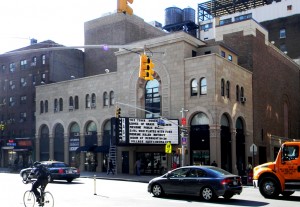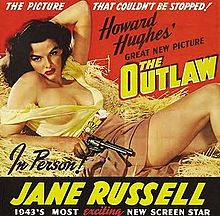The Cafe Royale, ah, the Cafe Royale!! Few people (and they are few, mainly men and women in their 90’s) who can say those words without a warm smile. The Cafe Royale had a long run: 1908-1952. It was located in New York on the corner of Second Avenue and E.12th (now a movie theater). For much of the cafe’s history, Second Avenue was the home of the Yiddish theater. There were numerous theaters and vaudeville venues. Stars galore: Jacob Ben Ami; Jacob and Celia Adler (their relations included Luther and Stella); Maurice Schwartz; Molly Picon; Menasha Skolnick. Aaron Lebedoff, Leo Fuchs and Moishe Oysher were vaudeville luminaries. Munii Weisenfreund (he changed his name to Paul Muni) and Walter Matthau were among the many actors who left the Yiddish theater to attain fame on Broadway and in Hollywood. HG only visited Cafe Royale in its final year — 1952. It was a sad place then, inhabited by old Yiddish actors bewailing (over numerous cups of tea) the death of a once vigorous theater. In its heyday, the Cafe Royale was the Yiddish Sardi’s—a schnapps and schmaltz fueled joint that teemed with Yiddish-speaking performers, composers, producers, set designers, musicians, press agents, dancers, playwrights—plus ardent fans and hangers on. It was one big Yiddish schmooze-fest and kibbitz. According to HG’s older friends, the Cafe Royale was the scene of theatrical feuds, naughty romance and artistic argument. The food and drink were savory. Voices were loud. Waiters were irascible. Hy Kraft, screenwriter and playwright, wrote a play about Cafe Royale, Cafe Crown. It opened on Broadway in 1942. Directed by Elia Kazan, it had a four month run. Kazan didn’t think much of Kraft as a playwright but said “He had a talent for the Jewish anecdote.” And, the play is as stuffed with Jewish jokes and anecdotes as an old Cafe Royale patron sitting back after a meal of chopped liver and Hungarian goulash. Joe Papp of New York’s Public Theater was fond of the Cafe Royale, the Yiddish theater and Cafe Crown. He revived the play in 1988 in a production starring Eli Wallach. Cafe Crown had another life in 1964. Kraft adapted it as a musical and HG/BSK went to the opening night. HG/BSK were pals with theater folks close to Kraft. The musical was not a success but it introduced a very engaging young actor, Alan Alda. HG/BSK joined Alda and his wife at Sardi’s for a post-theater dinner and found him to be a modest and amusing young man, surprising in someone whose star quality was so evident. Hy Kraft (he wrote it with Johnny Mercer) had a big hit in the Broadway musical (later a movie) Top Banana. It made Phil Silvers a star. Hy Kraft was an indomitable liberal. He defied the Red hunters and was blacklisted in Hollywood. Later, he battled against the American presence in Vietnam. The tragedy of his life was the early death of his daughter, Jill, a lovely and talented ingenue.
Cafe Royale
March 28th, 2014 § 0 comments § permalink
Wit
July 25th, 2013 § 4 comments § permalink
HG doesn’t spend his days only writing and thinking about food and drink. Today, HG thought about wit. No, not funny. There are lots of funny people around. Woody Allen, David Sedaris, Steve Martin, Jack Handey, Paul Rudnick, Marshall Brickman and Ian Frazier (yes, the author of On The Rez and Travels in Siberia can be hilarious) and others make HG laugh.(Alas. Dave Barry discontinued his column, a weekly shower of laughs). Wit, however, is scarce. What HG has in mind when he thinks of wit are the off-the-cuff, un-rehearsed one liners, retorts, apt insults, swift characterizations and satirical comments that have bite and savor. The French call these (and HG paraphrases) “staircase remarks,” meaning that they are the remarks you would have used to demolish the dinner party boor; unfortunately, you only thought about these cutting words after you have left the party and are walking down the staircase. Wit takes many forms, not all destructive (although malice does contribute a certain spark). Here are examples of wit that HG treasures. You may have heard many of them but bear with HG and allow the Hungry Guy to bore you: Lady Astor to Winston Churchill: “If you were my husband I’d put poison in your coffee.” The retort: “If I was your husband, I’d drink it.” The legendary British politician Benjamin Disraeli’s description of an unfortunate dinner party: “Everything was cold but the champagne.” Disraeli’s culinary advice (true then and now): “Vote with the liberals. Dine with the Tories.” Truman Capote to a rowdy who displayed his male member and said: “Autograph this.” Capote looked at the unprepossessing organ and said: “Well, I could initial it.”
Show business folk have been responsible for many memorable lines. The great playwrights George S. Kaufman and Moss Hart were summoned to the hotel room of the volatile, brilliant director, Jed Harris. Harris received them in the nude. There was a heated discussion of the play they were working on. Nobody mentioned Harris’ lack of clothing. But, upon leaving, Kaufman murmured: “Jed, your fly is open.” Screenwriter Harry Kurnitz was a renowned Hollywood wit. When Ernst Lubitsch was fired from his job as a studio head but didn’t leave his office immediately, Kurnitz remarked: “Forgotten. But, not gone.” And, it was Kurnitz who characterized the marketing campaign for the film The Outlaw, a campaign that emphasized the actress Jane Russell’s robust cleavage: “The Sale of Two Titties.”
Jewishness and its many manifestations have elicited some memorable lines. Walter Matthau (who began his career on the Yiddish stage) wrecked his sailboat and was forced to make an emergency docking at a very exclusive, WASPY (and presumably anti-semitic) yachting club. The club commodore asked Matthau: “And, who are your people, Mr. Matthau?.” Matthau’s answer was succinct: “Goyim.” Groucho Marx once inquired of the director of a restricted country club: “I’m only half Jewish. Can I play nine holes?” And, it was Marx who said of the Presidential hopeful Barry Goldwater (who was of Jewish ancestry): “I always knew the first Jewish President would be an Episcopalian.” HG will leave the last word (a bitter and sardonic piece of wit) to Otto Kahn, the very elegant and cultivated Jewish financier and art patron. When asked for a definition of a “kike,” Kahn retorted: “A Jewish gentleman who has just left the room.”

